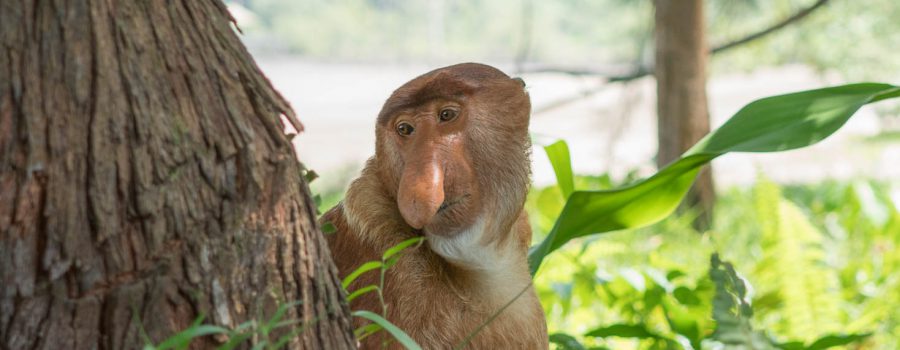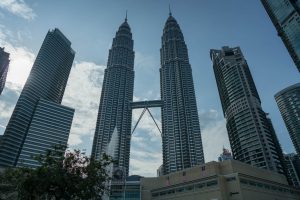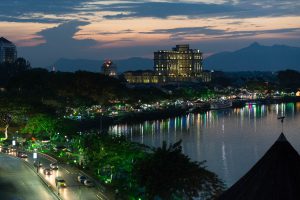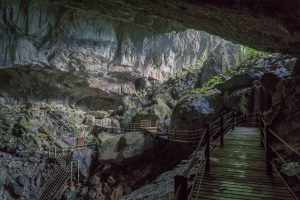Bako National Park is almost the perfect tropical island. Almost because first it’s not an island but only a peninsula north of the city of Kuching, and second the beaches are not safe for swimming here due to the presence of jellyfish, stingrays and saltwater crocodiles that can reach a length of up to six meters. None of them I consider nice companions for a swim in the tropical sea.
Apart from that, Bako National Park really offers everything. Beautiful remote beaches, surrounded by palm trees and dense rainforest, good trails for accessing the inner areas of the jungle, incredible wildlife, and most importantly, in a peaceful atmosphere with not too many tourists around. So far I have really not got disappointed by Borneo!
Hiking in Bako National Park
There is a total of 16 trails available in the park, all of them originating from the headquarters. While some trails only are a short walk to some pretty beach, other trails take you for more than eight hours across the whole national park. Unfortunately though, more than half of the national park was closed for hiking due to maintenance. But the remaining trails still did not disappoint. On the first evening, Ilinca and I hiked for 30 minutes to Paku Bay, a lonely beach surrounded by steep limestone cliffs embedded in the rainforest. Apart from two other tourists, a few monkeys and some crabs, we were completely alone.
Today, we followed the 5.8 km Lintang trail which starts in the mangroves near the headquarters, then leads uphill through dense rainforest towards the inner part of the island. Once on top of the hills, there was no more dense rainforest, but much dryer forest and at parts even blank limestone because there was no soil available for plants to grow. This part was especially hot to walk, luckily the sun was hiding behind some clouds every now and then, but also the rest of the trail was hot and humid. When we arrived back at the headquarters, we were both soaking wet, incl. the shorts. Now would have been the time for a swim in the sea, but safety first – we took a shower in our bungalow.









Wildlife in Bako National Park
Bako National Park is home to the endangered proboscis monkeys that only exist in Borneo and it is estimated that there are only around 1000 animals left in Sarawak. The males are known for their very large noses and the big stomach which helps them digest leaves that would otherwise be inedible. Compared to the macaques which are very common in this area, proboscis monkeys only live in coastal areas close to mangroves. And neither do they interact with humans nor are they afraid of them. You can approach such an animal to one meter without it running away or becoming aggressive.
Apart from the proboscis monkey, Bako National Parks offers also plenty of wildlife – some of which can be spotted easily during the day such as the also endangered silvered leaf monkeys, bearded pigs, squirrels, various birds and insects. Some of them require a bit more luck, such as the 80 cm long lizard which I met by chance, or the help of an experienced guide during a night walk such as the venomous green pit viper, wild cats, tarantulas and other nice spiders, scorpions, frogs, catfish, stick insects, and so on.
Accommodation in Bako National Park
The headquarters and the few chalets are nicely located between the beach and the rainforest. When looking out of our bedroom, we can see dense jungle, and nothing else. Quite a nice atmosphere. The only problem is: The rooms are VERY basic. There is no air conditioning, only a noisy small fan and the windows cannot be opened due to the monkeys that surround the apartment. The consequence: Hot and steamy climate inside the room, mosquitos (because the nets have holes in it), and a moldy smell. For two nights this is acceptable, but for a longer stay we would need to get a more comfortable room!























